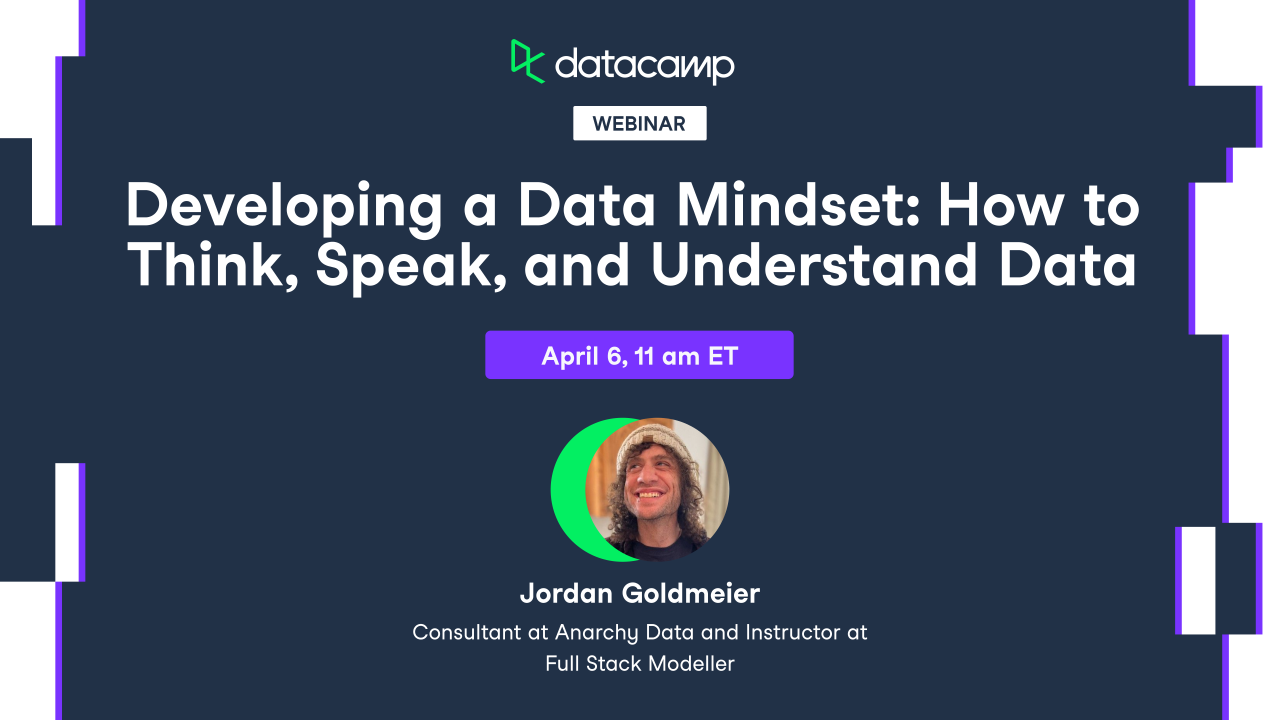Direkt zum InhaltWeitere Informationen





Lautsprecher

Jordan Goldmeier
Consultant at Anarchy Data, Founder at The Money Making Machine Newsletter, Instructor at Full Stack Modeller
Trainierst du 2 oder mehr?
Erhalten Sie für Ihr Team Zugriff auf die vollständige DataCamp-Bibliothek mit zentralisierten Berichten, Zuweisungen, Projekten und mehrVerwandt
webinar
Building a Data Mindset: How to Think Like a Data Scientist
Dave Wentzel, a Technical Evangelist at Microsoft, helps you understand the data mindset so you can have an intelligent conversation with a data scientist, and perhaps try analyzing some data yourself.webinar
Crafting a Lean and Effective Data Governance Strategy
In this webinar, we will guide you through the nuances of developing a robust data governance strategy that drives value for your organization.webinar
Data Literacy: A How-to Guide for Leaders
Fireside chat with Chief Data Strategy Officer at ThoughtSpot, Cindi Howson.webinar
Be Data Literate: The Data Literacy Skills Everyone Needs to Succeed
Jordan Morrow outlines how people and organizations can be more data literatewebinar
Building an Internal Data Skills Academy
This webinar will cover the key steps for building an internal data academy, including defining learning paths, securing executive support, defining learning personas, scaling learning communities, and much more.webinar
How You & Your Team Can Learn Data Skills More Effectively
In this session Jo Boaler, the Nomellini & Olivier Professor of Mathematics Education at Stanford University, explains what we know about how to learn quantitative subjects well.Join 5000+ companies and 80% of the Fortune 1000 who use DataCamp to upskill their teams.
Loved by thousands of companies
